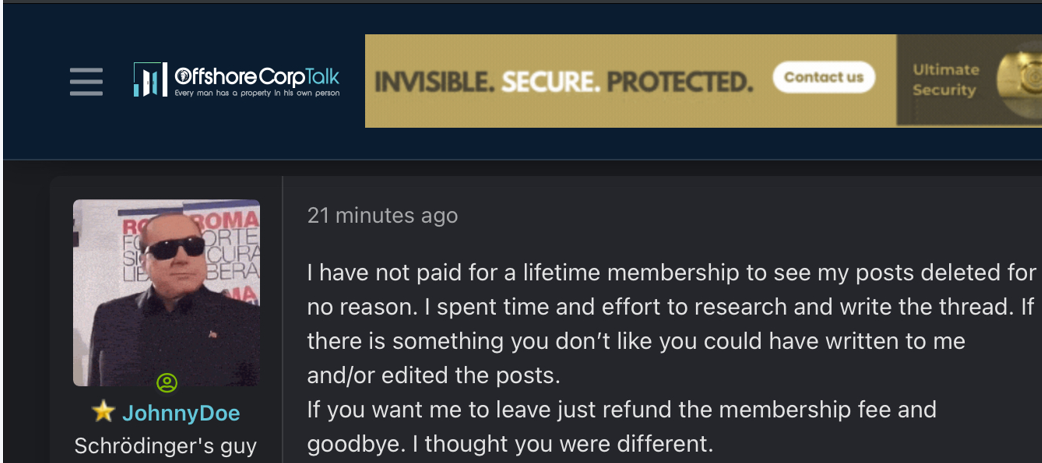Complaint Review: BRIGHT HOUSE NETWORKS - Auburndale Florida
- BRIGHT HOUSE NETWORKS 1004 US HWY 92 Auburndale, Florida United States of America
- Phone:
- Web: brighthouse.com
- Category: Cable TV
BRIGHT HOUSE NETWORKS - BHN brighthouse Allows primary contract holders to mislead and abuse "sub-contracted" laborers. Auburndale, Florida
*Author of original report: Example case out of Florida
listed on other sites?
Those sites steal
Ripoff Report's
content.
We can get those
removed for you!
Find out more here.
Ripoff Report
willing to make a
commitment to
customer satisfaction
Click here now..
Bright House Networks utilizes contracted companies for the majority of its' rsidential and commercial installation of Video, VOIP and high speed internet services. These contracted companies have mislead and abused the work force by missclassifying employees as "sub-contractors". This classification is simply an effort to avoid providing workers compensation insurance, health insurance, unemployment and overtime pay. The cost of tools, fuel, vehicle maintanance, commercial auto insurance and liability insurance also become the burden of the missclassified employee.
The treatment and control placed over these workers does not constitute "sub-contractor" status. Bright House Networks is in need of an overhaul in regard to this situation. Being a family owned corporation BHN must see the need to provide the workers that come into direct contact with their customers a fair opportunity; this will only occour when the current business model is revised and brought into compliance with state and federal laws.
This report was posted on Ripoff Report on 10/23/2009 06:03 AM and is a permanent record located here: https://www.ripoffreport.com/reports/bright-house-networks/auburndale-florida-33823/bright-house-networks-bhn-brighthouse-allows-primary-contract-holders-to-mislead-and-abu-513685. The posting time indicated is Arizona local time. Arizona does not observe daylight savings so the post time may be Mountain or Pacific depending on the time of year. Ripoff Report has an exclusive license to this report. It may not be copied without the written permission of Ripoff Report. READ: Foreign websites steal our content
If you would like to see more Rip-off Reports on this company/individual, search here:
#1 Author of original report
Example case out of Florida
AUTHOR: Concerned - (USA)
SUBMITTED: Saturday, October 24, 2009
Parrilla v. Allcom Const. & Installation Services, LLC
This matter came before the Court after a one-day bench trial on the issue of whether Plaintiff, was an independent contractor, and thus exempt from the overtime compensation requirements of the Fair Labor Standards Act (the FLSA). In its decision, on this highly litigated issue, the Court held that Plaintiff was an employee, notwithstanding Defendants argument otherwise, after reviewing the six factor economic reality test.
Initially the Court laid out the oft-used test:
In determining whether an individual is an employee or independent contractor, the United States Supreme Court has explained that lower courts must consider the economic realities of the parties relationship-not the labels or formalities by which the parties characterize their relationship. See generally Rutherford Food Corp. v. McComb, 331 U.S. 722, 67 S.Ct. 1473, 91 L.Ed. 1772 (1947); see also Bartels v. Birmingham, 332 U.S. 126, 130, 67 S.Ct. 1547, 91 L.Ed. 1947 (1947). The Eleventh Circuit has noted that the following factors guide this inquiry:
(1) the nature and degree of the alleged employers control as to the manner in which the work is to be performed;
(2) the alleged employees opportunity for profit or loss depending upon his managerial skill;
(3) the alleged employees investment in equipment or materials required for his task, or his employment of workers;
(4) whether the service rendered requires a special skill;
(5) the degree of permanency and duration of the working relationship; and
(6) the extent to which the service rendered is an integral part of the alleged employers business.
Freund v. Hi-Tech Satellite, Inc., 185 F. Appx 782, 783 (11th Cir.2006) (unpublished) [hereinafter "Freund"] (quoting Secy of Labor v. Lauritzen, 835 F.2d 1529, 1535 (7th Cir.1987)); see also 29 C.F.R. 500.20(h)(4).
The Court then discussed its factual findings as applied to the six factor test:
A. Nature and Degree of Control Exerted by Defendant Over Plaintiff
The testimony and record evidence in this case establishes that Defendant exerted significant control over Plaintiff. Specifically, Defendant controlled Plaintiffs daily work schedule, the type of work Plaintiff performed, the amount of time Plaintiff could take off from work, and the manner in which Plaintiff carried out his work.
Defendant determined Plaintiffs daily work schedule, the resulting number of hours that Plaintiff worked, and the type of jobs that Plaintiff performed. Defendant required Plaintiff to arrive at its place of work at approximately 7:30 a.m. each day; Defendant would then hand Plaintiff a list of work orders to perform for the day. Plaintiff had no control over the work orders that he received, the types of jobs that he could perform or the order in which he carried out the work orders. Plaintiff could not, for instance, perform work orders relating only to Internet service. He had to carry out the work orders that Defendant gave him and in the order that Defendant specified. Furthermore, if a customer requested additional work, or work that differed from what was printed on an existing work order, Plaintiff could not accept the new work unless Bright House and Defendants supervisors first approved the new work and Plaintiff received a new work order. Finally, Defendant did not permit Plaintiff to perform cable installation work for any other cable installation provider.
Plaintiff also had little control over when to perform the work orders or the order in which he choose to carry out the work orders. When Bright House customers schedule an appointment with a technician, they are given a two-hour window in which they must wait for the technician to arrive and start performing the work. To ensure that its technicians would be able to meet these windows, Defendant assigned its work orders based largely on geographical proximity. Plaintiff had no control over this assignment process and was required to meet Bright House customers time windows. He could not re-schedule customer appointments. Furthermore, Defendant would sometimes instruct Plaintiff to leave a particular job (even if the job were not complete) and go to another job; Plaintiff did not have any meaningful discretion to refuse those instructions.
Defendant also controlled the amount of time, and the manner in which, Plaintiff could take time off. While there was conflicting evidence on this issue, the Court finds that the more credible evidence revealed that Defendant would penalize, or at least threatened to penalize, technicians who frequently requested time off, failed to show up each morning at Defendants office, or failed to attend Defendants mandatory weekly meetings. Although Defendant appears to have made some allowances for doctors appointments, family emergencies and vacations that were planned in advance, it would penalize or terminate technicians who simply decided that, for whatever reason, they did not want to work on a particular day. Indeed, Defendants manager testified that its technicians needed to request time off.
Defendant also supervised, to a significant extent, the manner in which Plaintiff carried out his work. Defendant provided Plaintiff with specifications (that came mostly from Bright House) on how his work was to be performed. If Bright House informed Defendant that it was not satisfied with the manner in which Plaintiff performed an installation, Defendant would assess Plaintiff with fixed monetary penalties (or charge-backs) based on the type of job performed (e.g., the penalty for an unsatisfactory modem installation might be $50, while the penalty on an unsatisfactory television installation might be $25). Defendant automatically deducted these charge-backs from the weekly payments it made to Plaintiffs company. In some instances, these penalties actually exceeded the total amount Plaintiff was supposed to be paid on a job. Plaintiff had no way of disputing or negotiating the amount of a particular charge-back. Finally, Defendant and Bright House sometimes sent supervisors to spot-check or monitor Plaintiff and other technicians after they completed a job or even during a job.
B. Plaintiffs Opportunity for Profit or Loss Depending on His Managerial Skill
The testimony and record evidence in this case establishes that Plaintiffs opportunity for profit or loss did not depend upon his managerial skill. Instead, Plaintiffs compensation was based simply on the number and type of jobs that Defendant gave him and the quality and pace of Plaintiffs work.
Because Plaintiff was paid on a piece work basis, Plaintiffs opportunity for profit or loss was, in a simplistic sense, a function of the number of jobs he could complete in a finite time frame. Excluding charge-backs, the more jobs Plaintiff could quickly complete, the more Plaintiff stood to profit.
As noted, supra, however, Plaintiffs profit was also a function of the type of work orders that Defendant assigned him (and the amount of charge-backs Plaintiff received). Because the types of jobs that Plaintiff performed each paid differently, notwithstanding the amount of time it took to complete those jobs, Plaintiff would experience days that were more profitable than others simply as a result of the type of work orders that Defendant assigned to him. For example, assuming cable modem installations paid more than television installations, if all the work orders Plaintiff received on a given day were for cable modem installations, Plaintiff would make more on that day, ceteris paribus, than if he had been assigned all television installations. Of course, if cable modem installations took twice as long as television installations, it might be the case that Plaintiff could earn the same amount (or more) by just doing television installations throughout the day. Importantly, though, Plaintiff had no control over the types of work orders that he was given and, in at least some instances, Defendant instructed him to leave particular jobs to perform other potentially less profitable jobs.
Furthermore, Plaintiff was not permitted to install cable services for other cable installation companies. Nor was he permitted to provide additional services for Bright House customers without first obtaining a new work order authorized by both Bright House and Defendant.
No matter how quickly or efficiently Plaintiff worked, Defendants charge-backs, the manner in which it assigned jobs, and the directives it gave to sometimes leave jobs prior to their completion obviated Plaintiffs ability to rely upon his own managerial skill.
C. Plaintiffs Investment in Equipment or His Employment of Others
The testimony and record evidence in this case establishes that Plaintiff did not make any significant investment in capital or employ others.
Although Plaintiff provided most of the equipment necessary for performing installations on behalf of Defendant, Plaintiffs relative investment in that equipment was small. In total, the cost of the hand tools, cable fishing stick, crimper, hammer drill, cable meter, and ladder that Defendant required Plaintiff to purchase amounted to perhaps no more than $1,000 (the cable meter and hammer drill, for instance, cost $500 and $150, respectively). Bright House provided the actual cable, cable modems, digital video recorders and other material inputs required for the installations. While Plaintiff used his own vehicle (a mini-van) to drive to customers houses, that vehicle was also for personal use.
*5 Defendant ostensibly gave Plaintiff the option to hire others through his own company. But that option was illusory. With the exception of just one husband and wife team, none of Defendants technicians, including Plaintiff, ever utilized or substituted others to carry out the work orders that Defendant assigned.
D. Special Skills Required for Plaintiffs Services
The testimony and record evidence in this case establishes that Plaintiffs work did not require the application of particularly special, or difficult to acquire, skills.
Although Plaintiffs work involved proper cable wiring, connecting and configuring Internet cable modems, the use of a cable meter, and answering customers questions, Defendants manager testified that those skills could be acquired in as little as two weeks of on-the-job training. In fact, Defendant often assigned experienced technicians to work with new technicians for a one or two week period in order to get new technicians up to speed. After this short training period, Defendant would start sending the new technicians out into the field.
E. The Degree of Permanence and Duration of Plaintiffs Working Relationship With Defendant
The testimony and record evidence in this case establishes that there was a high degree of permanence in Plaintiffs relationship with Defendant. As noted, supra, Plaintiff was not permitted to provide cable installation services for any other cable installation company while we worked for Defendant. Plaintiff was expected to show up at Defendants office each morning, six days a week, and was given work orders that typically amounted to a full days worth of work. This relationship continued for nearly one and a half years.
F. The Extent to Which Plaintiffs Work Was Integral to Defendant
The testimony and record evidence in this case establishes that Plaintiffs work was clearly integral to Defendants business. In the absence of Plaintiffs work, and the work of Defendants other installation technicians, Defendant would not succeed as an ongoing enterprise. Defendant conceded as much in its trial brief (Doc. 52 at 5) and later at trial.
V. Conclusion
Based on the totality of the circumstances, it is clear that Plaintiff was an employee-and not an exempt independent contractor-for purposes of the FLSA. Taken together, all six of the factors comprising the economic reality test overwhelmingly support the conclusion that Plaintiff was an employee who was economically dependent on Defendant.

Advertisers above have met our
strict standards for business conduct.







































